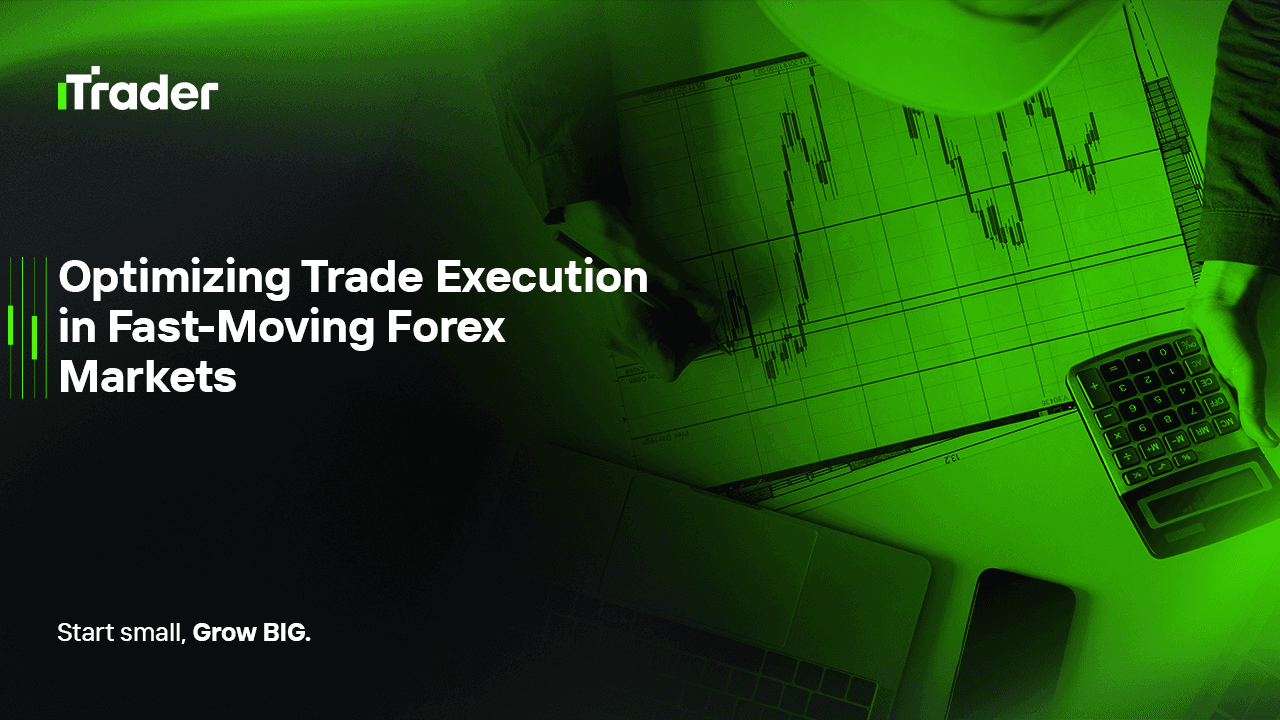2025-07-28
In algorithm-dominated financial world, speed is a strategic edge. But speed alone is not enough. Especially in fast-moving market environments, prop traders face intensified risks such as slippage, delayed execution, emotional overtrading, and microstructural traps. Without optimization, even well-researched strategies fail under sudden volatility. This article provides actionable frameworks for prop traders to optimize their execution and risk performance during fast-paced market conditions.

AI Summary
Fast-moving markets expose traders to execution delays, slippage, and rapid volatility changes that can erode performance. For prop traders, optimizing trading systems for latency, using pre-execution logic, dynamic risk adjustment, and modular trade management is essential. This article outlines how to remain efficient, composed, and strategically adaptive in high-velocity market conditions, especially during economic news, low-liquidity events, or regime shifts.
A fast-moving market is defined by:
These environments often occur around:
For a prop trader, adapting to these changes means creating a system that detects, reacts, and executes with precision.
Latency is the time between trade decision and execution. In a slow market, minor latency is tolerable. But in high-speed markets:
Solutions:
Execution technology is not just for HFT firms. Even discretionary prop traders benefit from latency-optimized systems when markets turn chaotic.
Most traders either avoid or gamble during high-impact news. Prop traders should take a protocolized approach:
This approach preserves capital while still allowing exposure to potential high-R profits.
During volatile spikes, fixed position sizing becomes inefficient. A 1% risk trade during a quiet Asian session behaves differently than the same size during a Fed rate release.
Key techniques:
Your system should simulate not just PnL but behavioral stress under fast movement – and respond accordingly.
Markets don’t just move – they accelerate. A strategy should manage trade states modularly:
Modularity creates decision buffers and reduces panic exits. For example, if slippage exceeds 3 pips, the monitoring module can exit independently regardless of take-profit level.
This architecture is crucial when news spikes reverse quickly or liquidity dries up.
Fast-moving markets don’t just test systems – they test humans. Typical issues:
Countermeasures:
Top prop traders treat psychological discipline as a risk metric in high-velocity trades.
Knowing when not to trade is often more valuable than complex indicators. Prop traders must learn to filter sessions and setups:
Optimization includes eliminating low expectancy trades, especially in unstable price discovery phases.
Many strategies fail not because they’re bad – but because their execution assumptions don’t hold under fast market regimes.
Checklist for realistic backtesting:
Bridging this gap helps prop traders build “deployment-ready” strategies that survive the chaos, not just simulations.
Speed is seductive—but raw speed without precision causes loss. The real edge for prop traders lies in:
Treat high-speed markets as special environments requiring specialized behavior. By optimizing your execution architecture, risk logic, and human factors, you ensure your edge is preserved even when the market is running at full throttle.
© 2025 iTrader Global Limited | หมายเลขทะเบียนบริษัท: 15962
iTrader Global Limited ตั้งอยู่ที่ Hamchako, Mutsamudu, เกาะปกครองตนเอง Anjouan, สหภาพคอโมโรส และได้รับใบอนุญาตและอยู่ภายใต้การกำกับดูแลของคณะกรรมการหลักทรัพย์แห่งคอโมโรส ภายใต้หมายเลขใบอนุญาต L15962/ITGL
iTrader Global Limited ดำเนินการภายใต้ชื่อทางการค้า “iTrader” และได้รับอนุญาตให้ดำเนินกิจกรรมการซื้อขายฟอเร็กซ์ โลโก้ เครื่องหมายการค้า และเว็บไซต์ของบริษัทเป็นทรัพย์สินเฉพาะของ iTrader Global Limited
บริษัทย่อยอื่น ๆ ของ iTrader Global Limited ได้แก่ iTrader Global Pty Ltd หมายเลขทะเบียนบริษัทออสเตรเลีย (ACN): 686 857 198 โดยบริษัทนี้เป็นตัวแทนที่ได้รับอนุญาต (หมายเลขตัวแทนบริการทางการเงินของออสเตรเลีย (AFS): 001315037) ของ Opheleo Holdings Pty Ltd (ใบอนุญาตบริการทางการเงินของออสเตรเลีย (AFSL): 000224485) ซึ่งมีที่อยู่จดทะเบียนอยู่ที่ Level 1, 256 Rundle St, Adelaide, SA 5000 ข้อจำกัดความรับผิดชอบ: นิติบุคคลนี้ไม่ใช่ผู้ออก และไม่รับผิดชอบต่อผลิตภัณฑ์ทางการเงินที่ซื้อขายบนหรือผ่านเว็บไซต์นี้
คำเตือนความเสี่ยง: การซื้อขาย CFD มีความเสี่ยงสูงต่อการสูญเสียเงินทุนอย่างรวดเร็วเนื่องจากเลเวอเรจ และอาจไม่เหมาะสมกับผู้ใช้ทุกคน
การซื้อขายกองทุน CFD และผลิตภัณฑ์ที่มีเลเวอเรจสูงอื่น ๆ ต้องการความรู้เฉพาะทาง
จากผลการวิจัยพบว่า 84.01% ของผู้เทรดที่ใช้เลเวอเรจประสบกับการขาดทุน
โปรดตรวจสอบให้แน่ใจว่าคุณเข้าใจความเสี่ยงทั้งหมด และพร้อมที่จะสูญเสียเงินทุนก่อนที่คุณจะเข้าร่วมการซื้อขายที่มีเลเวอเรจ
iTrader ขอประกาศว่า บริษัทจะไม่รับผิดชอบต่อความเสี่ยง ความเสียหาย หรือการสูญเสียใด ๆ ที่เกิดขึ้นจากการซื้อขายแบบมีเลเวอเรจต่อบุคคลหรือนิติบุคคลใด ๆ ทั้งสิ้น
ข่าวสารและข้อมูลที่ปรากฏบนเว็บไซต์นี้มีไว้เพื่อวัตถุประสงค์ทางการศึกษาเท่านั้น ผู้ใช้ควรตัดสินใจทางการเงินอย่างอิสระและโดยใช้ข้อมูลอย่างรอบคอบ
ข้อจำกัด: iTrader ไม่ได้มุ่งเป้าเว็บไซต์หรือบริการไปยังผู้อยู่อาศัยในประเทศที่กฎหมายหรือข้อบังคับห้ามไม่ให้มีการทำธุรกรรมดังกล่าว
หากคุณอาศัยอยู่ในเขตอำนาจที่การใช้เว็บไซต์หรือบริการนี้ถูกจำกัด คุณต้องรับผิดชอบในการปฏิบัติตามกฎหมายท้องถิ่น
iTrader ไม่รับประกันว่าเนื้อหาบนเว็บไซต์ของบริษัทจะเหมาะสมหรือถูกต้องตามกฎหมายในทุกพื้นที่